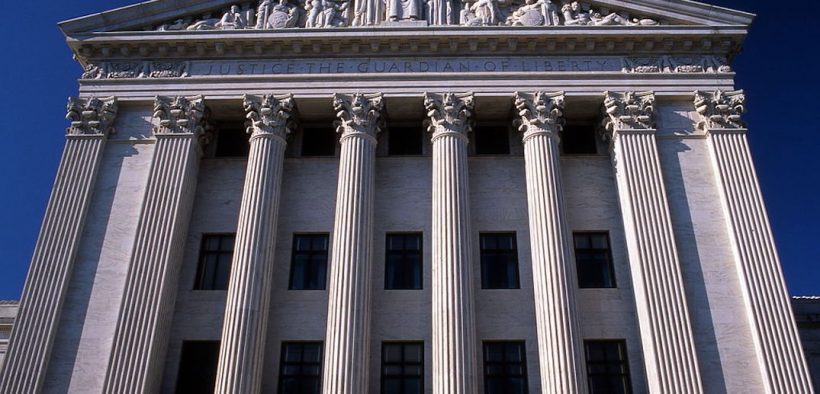Supreme Court to Weigh What You Can Legally Say About Immigration

In U.S. vs. Sineneng-Smith, the Supreme Court will decide whether a federal law prohibiting speech encouraging illegal immigration for financial gain violates the First Amendment.
The Supreme Court’s upcoming decision could put far-reaching restrictions on what you can legally say about immigration. The case, U.S. vs. Sineneng-Smith, revolves around the “federal criminal prohibition against encouraging or inducing illegal immigration for commercial advantage or private financial gain.”
It’s important to note that the subsection of the law in question is not against assisting or aiding illegal immigration, but rather against “encouraging or inducing.” In other words, this subsection made it illegal to say that someone should stay in the country illegally if the person saying it made money.
The Case: US vs Sineneng-Smith
Evelyn Sineneng-Smith ran an immigration consulting firm and was advising clients to stay in the U.S. by applying for certain visa extensions that she knew were no longer available and other programs she knew they weren’t eligible for. She was arrested for violating the above subsection, among other charges, and tried in 2015. Earlier this year, the case made its way to the Ninth Circuit Court, which ruled that the subsection prohibiting this type of speech was in violation of the First Amendment and therefore invalid. Sineneng-Smith’s conviction on other charges relating to mail fraud was not affected.
In his opinion for the Court, Judge A. Wallace Tashima wrote that the law “is unconstitutionally overbroad in violation of the First Amendment because it criminalizes a substantial amount of protected expression in relation to its narrow band of legitimately prohibited conduct and unprotected expression.” The Justice Department disagrees, maintaining that the law actually only applies to people who provide “substantial assistance” to illegal immigrants. They filed a petition with the Supreme Court to take up the case, which the Court agreed to on Oct. 4.
The Precedent
If the Supreme Court decides to overturn the Ninth Circuit’s ruling, and it once again becomes illegal to “encourage or induce illegal immigration for commercial advantage or private financial gain,” it will not just affect dishonest immigration consultants.
Under this subsection, it could be illegal for a professional writer to say that people who are denied asylum by the U.S. government and who will be killed if they return to their country of origin should remain in the U.S. illegally to save their lives. The law would also theoretically allow criminal charges to be brought against publishers, Internet providers and others for “aiding and abetting” people who encourage or induce illegal immigration for financial gain. When the statute was in effect, the Justice Department opted not to arrest and prosecute activists, writers or others who were technically in violation, but they could have.
“Zero tolerance” is the current paradigm being used by law enforcement tasked with stopping illegal immigration into the U.S., but it has not just been applied to illegal immigrants and human traffickers. The organization No More Deaths’ aims to prevent some of the hundreds of yearly deaths from dehydration that occur along the U.S.-Mexico border by having volunteers leave jugs of water and other supplies in the desert. Several have been arrested and one volunteer is currently on trial facing felony charges for violating a different subsection of the same statute that’s involved in this case.
How Will the Supreme Court Decide?
The case has not been scheduled for hearing yet, and it’s hard to say which way it will go. Recently, the Supreme Court court took a broad view of what constitutes “freedom of speech.” In 2018 the Court heard a case involving “crisis pregnancy centers” and ruled that forcing medically unlicensed centers to notify clients that they are not medically licensed violated the center’s freedom of speech. However, in the high profile case Masterpiece Cake Shop v. Colorado Civil Rights Commission, the Court opted not to rule on the part of the case that dealt with freedom of speech.
Decisions about freedom of speech often depend a lot on what is being said and by whom. Whether or not the Court strengthens or weakens the First Amendment with their ruling in the case may depend on the Justices’ immigration stances in addition to their thoughts on free speech.
















Just chanced on this article based on today’s unanimous SC decision written by, of all people, RBG. You were WAY off on this one.